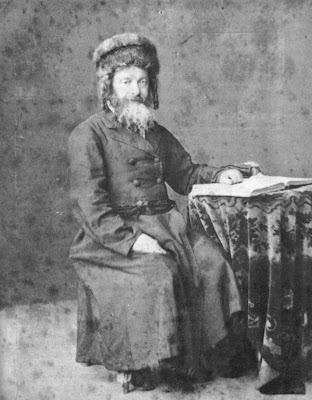Healing the rift within Orthodoxy
Jul. 22, 2008
Michael Freund, THE JERUSALEM POST
It's summer time, and Tisha Be'av, when Jews mourn the destruction of
the Temple in Jerusalem, is less than three weeks away.
Normally during this period, religious Jews tend to focus on themes
relating to the need for greater Jewish unity, in line with the
talmudic statement that it was the very absence of such cohesion which
led to our destruction and exile some two millennia ago.
But these aren't normal days – far from it – and the mercury in the
thermometer isn't the only thing heating up.
Ever since the conversion crisis erupted nearly three months, the war
of words between religious Zionists and haredim has grown increasingly
fiery, threatening to drive a stake right through the heart of
Orthodox Jewry.
Indeed, one of the consequences of the ruling by the haredi-dominated
Rabbinical High Court retroactively annulling conversions performed by
religious Zionist Rabbi Haim Druckman was to swing open the floodgates
of hateful intra-Orthodox rhetoric.
Spokesmen for both sides quickly manned the barricades, and wasted
little time hurling insults and invective at each other.
On May 7, for example, Bar-Ilan University's Dr. Asher Cohen wrote an
article in Makor Rishon comparing the Lithuanian branch of haredi
Orthodoxy to the murderous Taliban in Afghanistan, and decried what he
described as "haredi halachic Bolshevism."
Is this the language of respectful discourse? The haredi media was no
less discourteous in its approach. The daily Yated Ne'eman, in its
reporting on the controversy, repeatedly refused to use the title
"rabbi" when referring to Druckman.
And on May 25, the editorial in the haredi daily Hamodia denounced
Druckman's conversions in harsh terms, belittling them as "one big act
of clowning."
These are just a few choice pearls of the cruel and undignified
attacks that have been launched by both sides against one another in a
decidedly unspiritual-like display of deprecation.
Even normally cooler heads have started to join the fray, as a growing
number of moderate religious Zionist rabbis speak openly of "freeing
Israel" from "ultra-Orthodox hegemony".
As an Orthodox Jew, I find this clash deeply troubling.
WHILE THE dispute between the two camps pre-dates the establishment of
the state, driven by ideological differences over Zionism, events in
recent years have further heightened the discord.
Disagreements over how to oppose the 2005 Gaza withdrawal, and
controversy surrounding the observance of shmita, brought to the fore
a sense of loathing and even hate that simply has no place in a
spiritually-oriented community.
Frankly speaking, this is not the Torah way.
And if cooler heads don't prevail, and soon, it could cause lasting
damage to the inner fabric of Orthodox Jewry, potentially tearing the
community apart.
The dangers inherent in such a split are obvious. As it stands now,
Orthodox Jews are a minority among world Jewry, and there is nothing
to be gained by a division among the ranks.
Moreover, so much of what Orthodox Jewry believes in, from traditional
values to public decency, is currently under assault. Can we really
afford to be expending valuable time and energy excoriating one
another when everything we hold dear is under attack? We must find a
way to mend the schism within Orthodoxy.
• Step number one in healing the rift: tone down the rhetoric and turn
up the respect.
After all, on nearly all the major theological issues, from the
centrality of Torah to the primacy of Halacha, we basically agree with
one another. Sure, there are differences, and they are far from
insignificant, but personal attacks and insults, public humiliation
and disgrace, must be banished once and for all from our civil discourse.
• Step number two is surprisingly simple: create an exchange program
between religious Zionist and haredi yeshivot. Once a month, on every
Rosh Hodesh, students from religious Zionist and haredi academies
should get together and study Torah and Talmud.
Let them pore over biblical passages in unison, grapple with the
complexities of the medieval Tosafists and stretch their minds
together trying to figure out the meaning of Maimonides. That
experience alone would generate newfound mutual respect on both sides,
and would regularly serve to underline just how much the Torah can
bring us together.
It would also tear down the prejudice and preconceived notions that
prevail, and in communities that value scholarship, no one could
possibly object to the simple act of learning and studying together.
• Step number three: bring pressure to bear on public figures in the
religious Zionist and haredi worlds to take active steps towards
forging greater unity.
These can include organizing annual summits of leading rabbis from the
various streams of Orthodoxy, the issuance of joint declarations, and
the publication of compilations of halachic works by both Zionist and
haredi rabbis.
JEWISH HISTORY is replete with heated disputes. But now especially, as
Tisha Be'av nears, and the embers of the conversion crisis continue to
burn, Orthodoxy's varied adherents would do well to recall the words
of Rabbi Naftali Tzvi Yehuda Berlin, the famed Netziv of Volozhin. In
his introduction to the book of Genesis, he cites one overriding
reason to explain why the generation that endured the destruction of
Jerusalem at the hands of the Romans warranted such punishment nearly
20 centuries ago.
"Due to the baseless hatred in their hearts towards each other," the
Netziv wrote, "they suspected that those who disagreed with them on
religious matters were Sadducees or heretics. This brought them to
misguided bloodshed and many other evils until the Temple was destroyed."
At this critical point in our nation's saga, it should be clear, we
can ill afford to replicate that fatal mistake.


